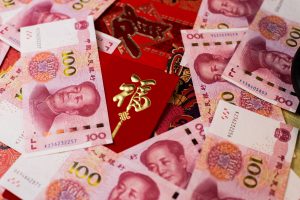Summer 2021 was intense period for VASPS, virtual asset holders, analysts and anyone keen to keep an eye on the mainstreaming of digital assets.
Earlier, in a bold but not so robustly planned move, El Salvador had declared Bitcoin legal tender. On September 24, China has announced a ‘latest’ ban on all crypto-related activities.
Both decisions had everything to do with international politics as much as with the question of crypto-regulation and they both proved that compliance stands at the centre of the debate.

China’s ban is “nothing new”.
Despite its wording and uncanny coverage, analysts have interpreted China’s legislative move as “nothing new” – merely a further step in the country’s prolonged battle against the anarchic, autonomous and ultimately threatening world of crypto asset trading. China has been tightening the control and lining up crackdown after crackdown on crypto related activities for a long time. The latest in line has outlawed the entire range of operations from order matching to issuing and overseas crypto exchanges extending their services to China.
Earlier crackdowns and relentlessly increased pressure had already led to an outflow of capital from the mainland, and the latest ban resulted in an exodus of mining operations.
The reason behind China’s clamorous ban was considered to be twofold: her ambition to champion the age of central-bank issued, government dominated virtual assets and to become carbon-neutral by 2060.
The reasons behind China’s clamorous ban and applying stringent penalties to crypto related activities were considered to be twofold: the first was her ambition to champion the epoch of central-bank issued, government dominated virtual assets.
The chaotic world of coins does not align with, or it simply stands as an antithesis to tight, from-top-to-bottom regulatory appetite the Chinese socio-economic miracle symbolizes.
The second reason is pointed out to be China’s goal of becoming carbon neutral by 2060 and the tremendous use of electricity associated with Bitcoin mining operations. Elon Musk has reiterated this particular concern, pointing to the role of Bitcoin mining in power shortages in Southern China.

El Salvador and Bitcoin going mainstream
At the other end of the crypto conundrum stood El Salvador and President Bukele’s decision to adopt bitcoin as leal tender.
Bukele’s bet on Bitcoin was mainly to attract funds from overseas bypassing the indebted country’s turbulent relationship with the IMF, whom he recently ‘thanked’ lately for issuing a warning that caused the Bitcoin to plunge.
El Salvador’s renegade decision to integrate Bitcoin as bona fide currency was a move that could be seen as serious as leaving the gold standard. Bukele had announced that the country has $150M in reserves for the transition fund and the government contractor to manage the transition, Chivo, has placed Bitcoin kiosks in country’s streets.
But given the context, the apparent unfeasibility of healthy transition due to lack of knowledge and enthusiasm on part of the public and the reaction of the international community, only time will tell the possible domino effect Bukele’s radical bet can trigger.
On the other hand, El Salvador was not alone in her ambitions bringing virtual assets to the mainstream. Another Latin American country, Paraguay, known for its energy reserves and hydro-electricity exporting power, had plans to include Bitcoin and to market itself as a “haven” for crypto investors.
Regardless of the regulatory move the SEC will push, it is certain that crypto assets cannot be regulated as tightly as fiat money or other traditional financial instruments.
Meanwhile, the U.S. front has hardly been silent. The SEC has been “working overtime” to draft the much-awaited crypto regulation, admitting to the gigantic nature of the task.
Regardless of the regulatory move the SEC will push, it is certain that crypto assets cannot be regulated as tightly as fiat money or other traditional financial instruments. Virtual assets are far too volatile and decentralised to be reined. While common thoughts pitch bitcoin as innovation that is independent of governmental caprice, it has long sparked warnings that it could increase regulatory and financial hazards for institutions, among them international AML (anti-money laundering) and terrorist financing rules. An effective regulatory umbrella to be put over the global activities must entail a globally concerted effort on part of all central banks.

A Block for Liberty and a Block for Control?
Is the world going to see a virtual asset friendly but well-regulated world of liberties led by the U.S. and a world of uncompromising control led by China?
In the light of the current crypto-related affairs, question arises on whether the handling of virtual assets and their instrumentalization will define – or add to the already existing contrast between – new global blocks?
Is the world going to see a virtual asset friendly but well-regulated world of liberties led by the U.S. and her allies, and a world of uncompromising control topped up by government-ordained virtual assets led by China?
Sources have already pointed to the forking roads of centralisation and a freer framework that highlights stablecoins operating smoothly. In such a scenario, a third block can emerge in the form of loosely regulated, opportunistic economies representing the “grey zone”. But the nature of up-and-coming regulations by the U.S. can urge a redefinition of the trajectory adopted by countries like El Salvador.
The will to rein in, contain, or play along the revolutionary potential of the world of virtual assets reflect the stratagems and habits already in play between jurisdictions and countries while indicating a bigger shift to come.







